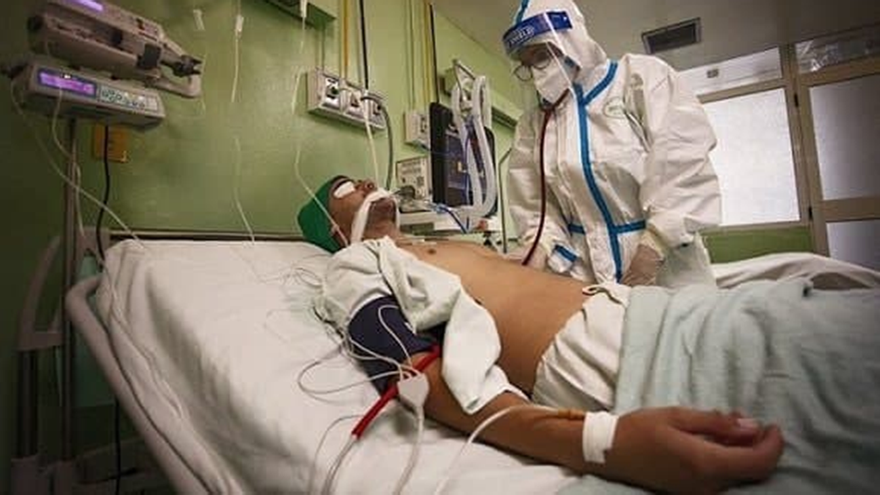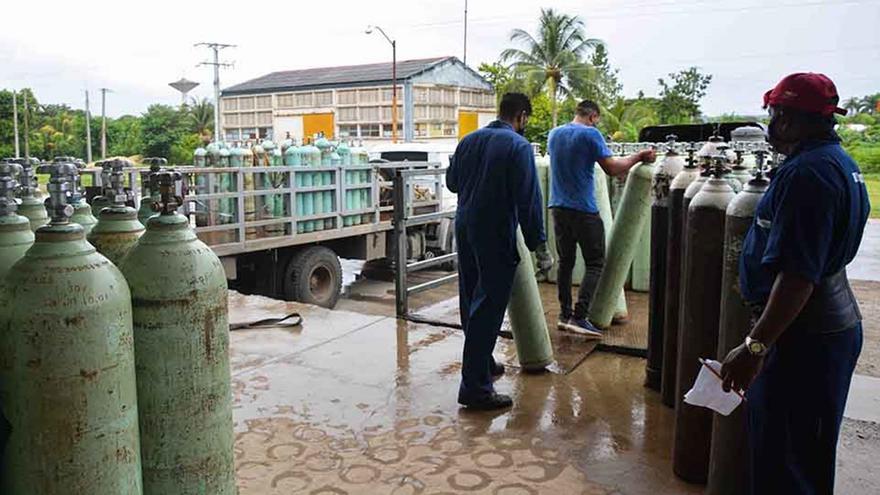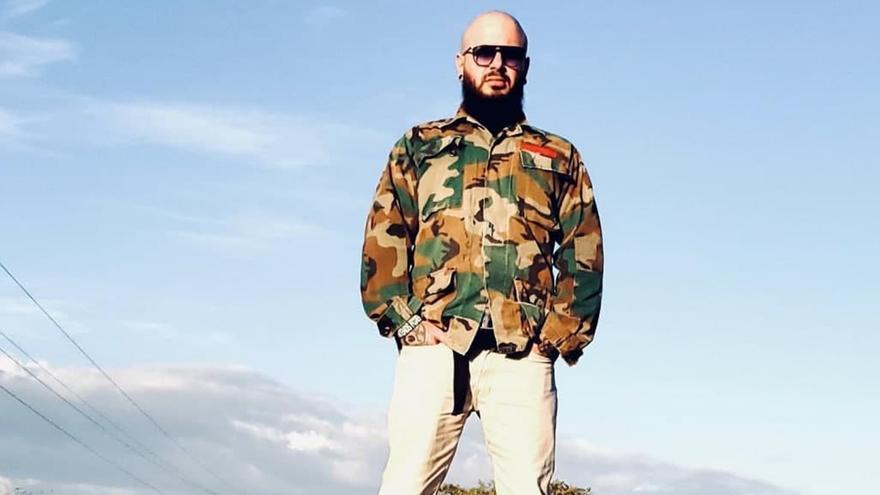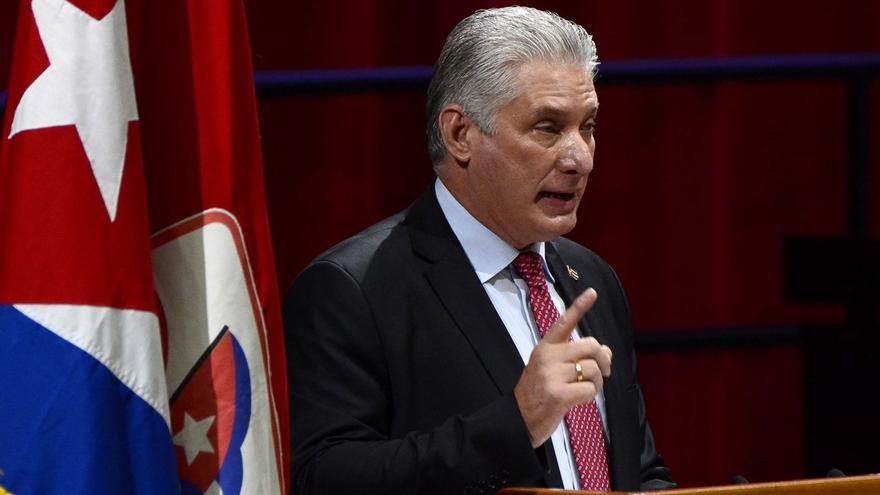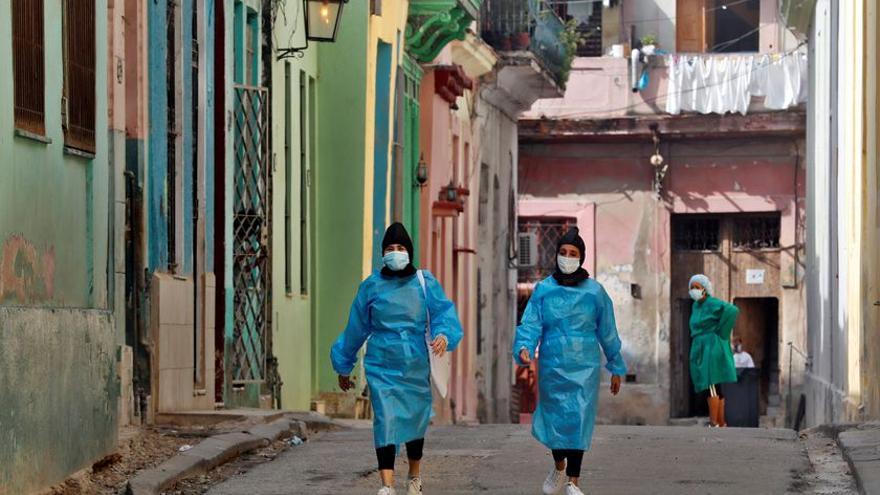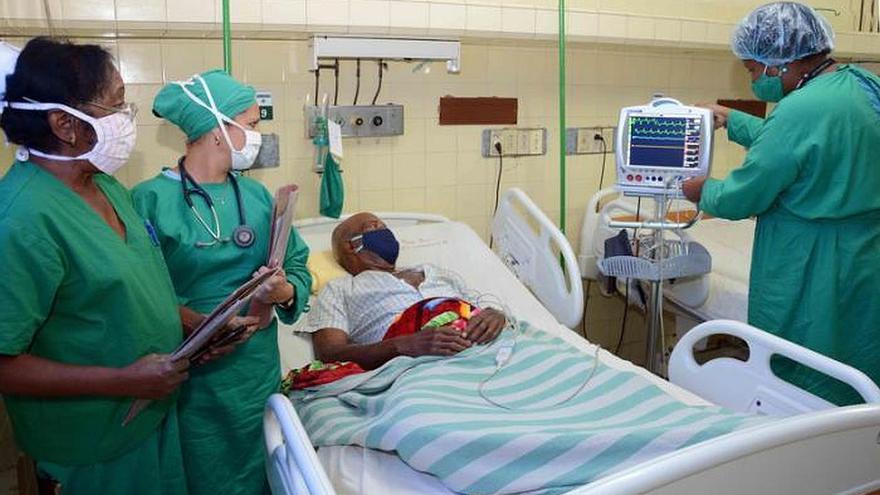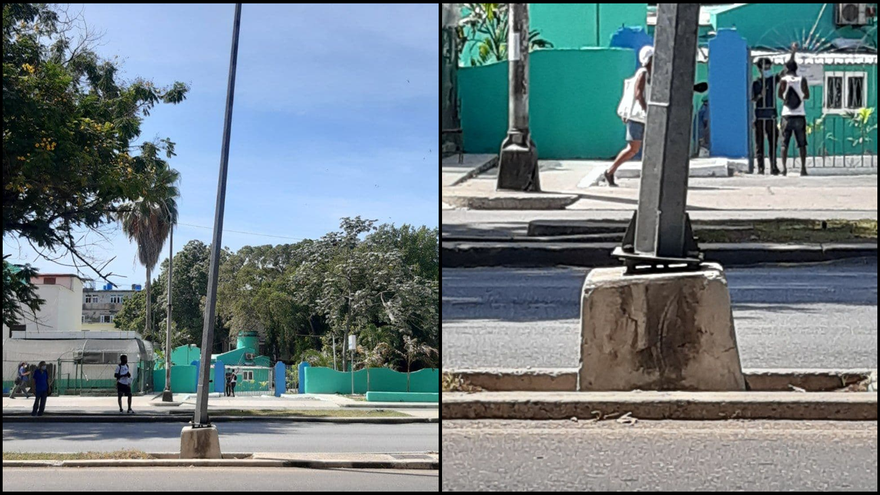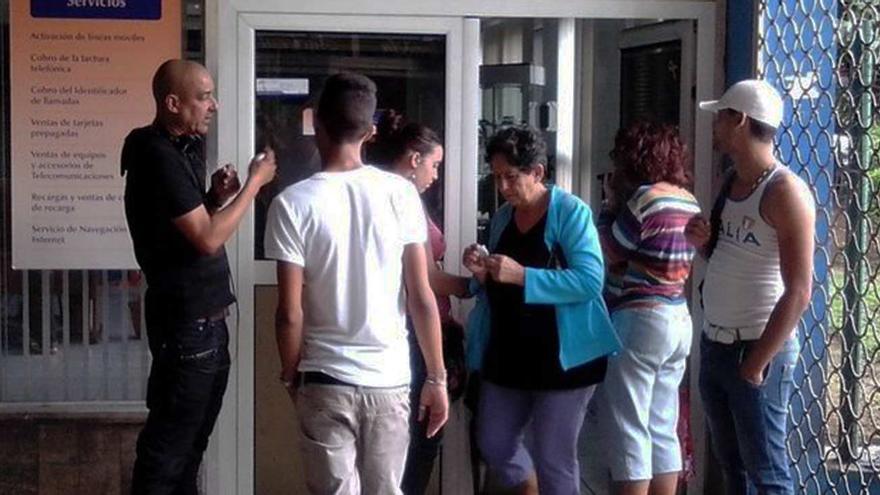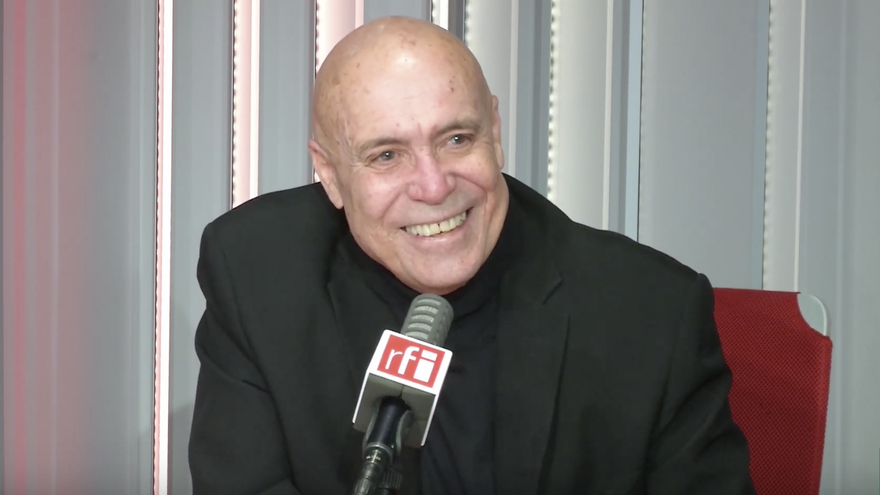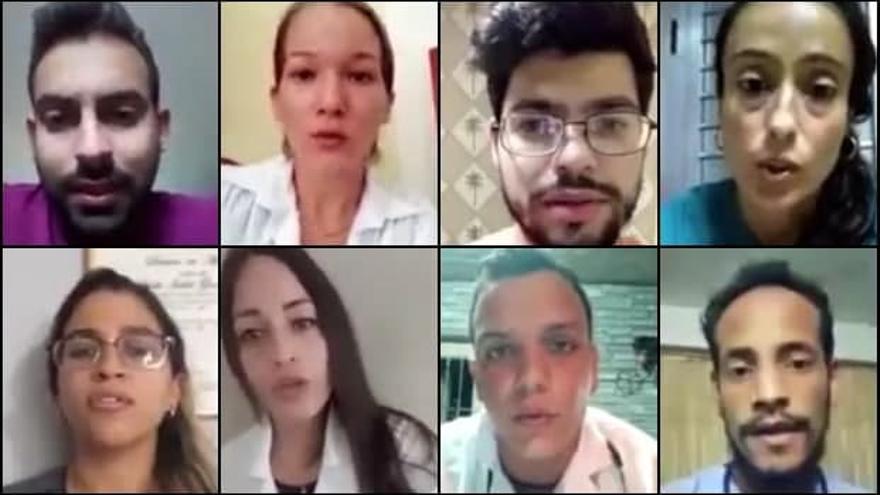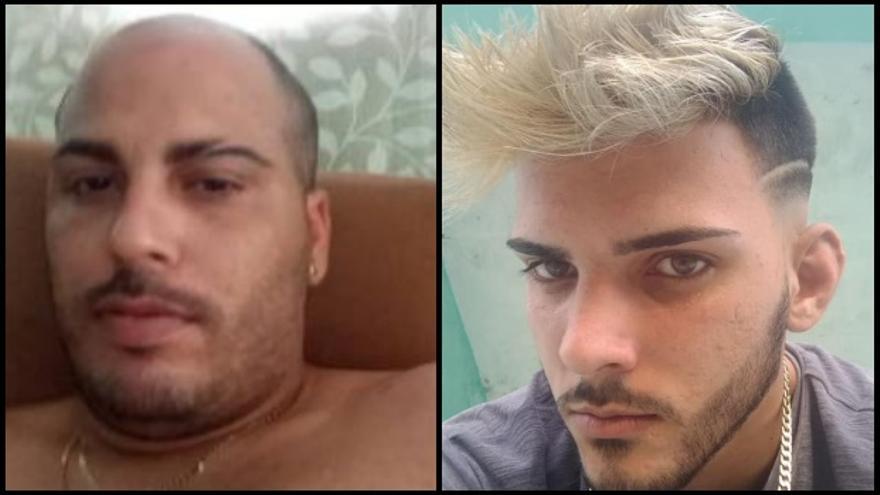In this interview he reads some passages from the ending: “Some predict that a popular uprising will sweep away everything in Cuba, others that the economic disaster will force the regime to negotiate with the opposition. What nobody imagines is that Cuba will stay the same.”
reflect it. History and fiction complement each other.
Yaiza Santos. One of the most remarkable things about the first volume, which coincides precisely with first year after the triumph of the Revolution, are those historical asides at the end of each chapter. Seeing them together is impressive: the restoration of the death penalty, the executions, the abolition of the separation of powers, the nationalizations… It was all very obvious from the beginning and yet many were enthralled with Cuban Revolution, a phenomenon that to some extent exists to this day. How do you explain this?
Jorge Luis Camacho. Frankly, I have no explanation for this. I think one of the things driving it, for example, is that some Europeans have a kind of love-hate relationship with the United States for reasons that I don’t quite understand but which are real. But I don’t think that explains the whole phenomenon. I like to say that communism, or the communist left, is a non-theistic religion. The left is waiting for a messiah and every time one comes along, they say, “Ah, this is the one.” First it was Lenin, then Stalin, followed by Mao, then Fidel came, then Chavez… then they all failed.
But the messianic left doesn’t care. They will love the next one just the same. I think it has something to do with Christianity. Even though very few communist leftists would believe me if I said they were religious, they are. Look at what just happened in Peru. It’s surprising that, just at the moment when Venezuela is a disaster, when Cuba is a disaster, people voted for a communist, who is open about it. And in six months we will see everything that he has destroyed.
Look at what just happened in Peru. It’s surprising that, just at the moment when Venezuela is a disaster, when Cuba is a disaster, people voted for communist.
Yaiza Santos. It seems metaphorical that you have a character in the book named Libertad [meaning liberty, or freedom], for Libertad Lamarque, who suffers from cancer.
Jorge Luis Camacho. Libertad’s cancer is the cancer of liberty in Cuba, with Batista and the rest. Even though Cuba had a constitution that outlawed capital punishment, it still had a lot of problems. Libertad’s illness worsens as liberty in Cuba gradually disappears.
Yaiza Santos. I was referring to a broader metaphor. Freedom is very fragile and contains within it a dark well capable of generating its own destruction. There is another character named Cohen, who says: “It is typical for autocracies to promise things that society has not achieved by itself, and only tyrannies can create the illusion of obtaining them.”
Jorge Luis Camacho. It’s not an accident that his name is Cohen. Getting back to Libertad and what she represents, if you notice in the first scene there is a crazy lady who throws herself in front of the car and says, “Liberty, liberty, don’t abandon me!” This could also be the response of uneducated people, who don’t have a compass and who throw themselves at anything, as has now happened now with the Peruvians.
Yaiza Santos. Part I manages to be suspenseful even though we know how it ends. What does the reader find in the other two volumes?
Jorge Luis Camacho. Part II takes place during the 1960s, after the new regime comes to power. That’s why it’s called Tempo Marziale. All three parts have Italian titles because they’re musical. And it’s called Cuban Symphony because it’s also a story about frustration.
Julio had wanted to be a musician but couldn’t because he’s the only one left in the family capable of getting its sugar refinery back. What’s beautiful in the end is that his son, who is a musician, wrote a short symphony when was 12 years old for his father and uncle when they were at Playa Girón, at the Bay of Pigs. [By the way] it’s not not called that because it has something to do with pigs; it’s because there are some very cute little tricolor fish that live in those waters. His son becomes a professional musician, expands the symphony and performs it on the day Julio is giving a speech at the family’s rebuilt factory, which obviously represents the country.
I don’t describe how freedom comes about but rather imply that it happens due to a social disaster that everyone could foresee. What’s curious is that the book was published in June and, less than a month later, the protests of July 11 occurred. The main character in my story is called Julio [July] and the chant that was repeated most often during those protests — “Libertad” — is the name of his mother. I feel like a magician [laughs].
If I made that joke, I’d end up prison for ten years. Now he’s saying this in front of me because we’re all together
Yaiza Santos. How did you leave Cuba for France? Had you already rejected the Revolution or did that come later?
Jorge Luis Camacho. I was always against the Revolution. I never had any appreciation for that system, despite the fact that I was raised by my older sister — my mother, like Julio’s, died of cancer when I was six years old — whose husband admired the Revolution and even became a party member. I had already been expelled from the Higher Institute of the Arts in Havana, allegedly for political reasons.
I was desperate to get off that island, which to me seemed like a disaster ruled by a demon. I didn’t believe anything he said. I have an anecdote about that. I was participating in a series sponsored by the Ministry of Foreign Affairs. When I got to the theater, I realized it was an event in honor of the army. The theater looked like a field of beans, everyone dressed in green, a horror.
Raul Castro was there and I heard him telling counterrevolutionary stories about how he explained to his mother what communism was. He told her, “Mama, we now own a banana orchard because this is socialism. When we no longer own a banana orchard, that will be communism.”
I thought, “These people must be kidding me. And taking my life away.” I thought that if I made a joke, I’d end up prison for ten years. Now he’s saying this in front of me because we’re all together, eating things that I had never seen in my life except in the movies. That confirmed my intuitions. I left Cuba with a lot of… I don’t like to use the word hate but, yes, I hated them.
I also left for love. I was hopelessly in love with a woman who was half French. She was the daughter of an impoverished baroness who had become a dancer at the Moulin Rouge and had married a Cuban dancer.
Yaiza Santos. How is your relationship with other Cubans living in Paris? Do you feel part of the Cuban exile community in France?
Jorge Luis Camacho. Yes and no. Because I lived and work as though I were French. I am clearly the only founder of the French screenwriter’s guild whose native language is not French. I knew Cubans in France but I was not actively involved in that world. I was also not very politically active at that time.
French governments, both of the left and the right, have a kind of admiration, no matter how ridiculous that might seem, for Fidel Castro.
Yaiza Santos. What attitudes have you found among the French towards Cuba?
Jorge Luis Camacho. Well, I’ve known some French people who were as anti-Castro as I, to the point that I thought that they were working for the French secret service. For the most part, French governments of both the left and the right have a kind of admiration, no matter how ridiculous that might seem, for Fidel Castro.
It’s surprising but right here in Paris, in the gay district, you see guys wearing Che Guevara T-shirts. Here was a homophobe, an absolute murderer, and yet there are people who believe he’s a symbol of freedom. France, both the people and the government, is not anti-Castro. Fidel Castro was welcomed with great fanfare by Mitterrand. Then Hollande welcomed the lesser but no less diabolical tyrant Raul, and many intellectuals attended the banquet that the president gave for the dictator.
Yaiza Santos. Would you go back to Cuba?
Today, for being lucky enough to have written this novel at this historic, consequential moment — because we’re all waiting to see liberty fully realized — I think so. I think I can play a role. I don’t know what but I will have a roll to play. Even though I have an eighteen-year-old son in France whom I don’t want to be away from, going to Cuba, acting on Cuban television or in Cuban movies… all these are things I dream about. Working for Cuba from France for a new Cuban government would also be something I’d like very much to do. Of course, all of us who live overseas think we have a role to play. I think it’s up to Cuba to decide whether to give us that role or not.
____________
COLLABORATE WITH OUR WORK: The 14ymedio team is committed to practicing serious journalism that reflects Cuba’s reality in all its depth. Thank you for joining us on this long journey. We invite you to continue supporting us by becoming a member of 14ymedio now. Together we can continue transforming journalism in Cuba.
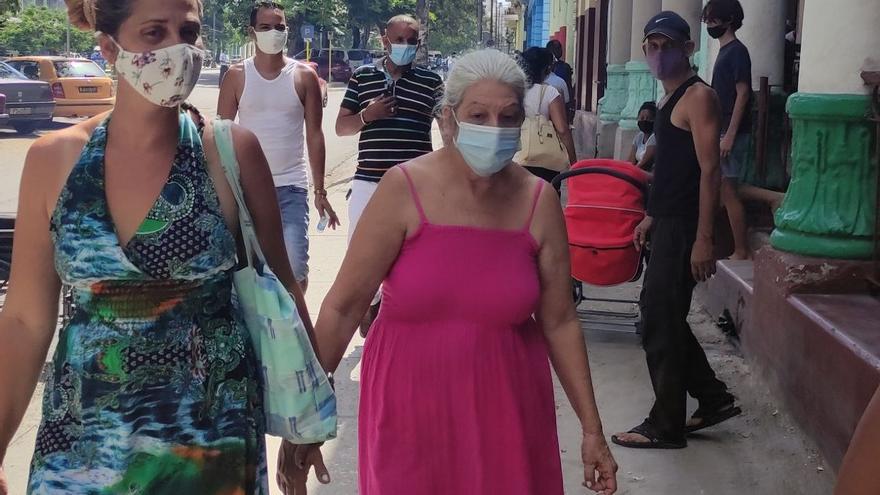
![]() EFE/14ymedio, Havana, 4 August 2021 — Institutional neglect and violence are two scourges that many Cuban women suffer, but not only this, they also cry out for democracy, freedom and human rights. It is something that is increasingly seen in citizen protests, as several organizations have accredited.
EFE/14ymedio, Havana, 4 August 2021 — Institutional neglect and violence are two scourges that many Cuban women suffer, but not only this, they also cry out for democracy, freedom and human rights. It is something that is increasingly seen in citizen protests, as several organizations have accredited.


